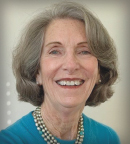Despite the benefits of lung cancer screening, including the high cure rate when found by screening compared to being discovered based on symptoms, the uptake of this technique among those who are eligible and where the screening is fully covered by insurance remains dismally low, on the order of 5% of those eligible.
During the Quantitative Imaging Workshop XIX, Wendy Everett, ScD, a senior advisor to Avalere Health, discussed lung cancer screening perceptions of both patients and clinicians as well as the impact of shared decision-making in determining whether to undergo screening.1

Wendy Everett, ScD
Are Patients a Part of the Discussion?
As Dr. Everett reported, a study conducted by the lung cancer screening team at Mount Sinai, working with Avalere Health, involved interviews with 24 patients who had been referred for lung cancer screening and 12 clinicians, including both primary care physicians and pulmonary specialists. Despite consensus by clinicians regarding the importance of shared decision-making, the study results showed that they preferred having it done centrally through a nurse practitioner.
“They just didn’t do it,” said Dr. Everett, regarding shared decision-making. “Some clinicians indicated they didn’t have the time, whereas others felt patients would not understand what they were talking about, especially when discussing conflicting data points.”
According to Dr. Everett, nearly half of the patients in the study reported their clinicians had not discussed the harms or benefits of lung cancer screening at the time of their decision to undergo screening. It was only after they showed up for screening that they underwent a short interview with a nurse practitioner.
“We sometimes underestimate the power of the patient-provider relationship,” said Dr. Everett. “Several patients who are smokers indicated they underwent screening because their doctors wanted to make sure their lungs are fine.”
Of note, when patients were asked to explain why they would or would not choose to participate in lung cancer screening, the benefits and harms of screening were shown to have an insignificant influence on their decision. Most patients also indicated they had not experienced a shared decision-making conversation with their clinician and lacked understanding of the practice, even though they did go through the process with the nurse practitioner.
“For patients, very early detection and the opportunity to cure were important,” said Dr. Everett, who noted that 75% of clinicians also focused on the importance of lung cancer screening in providing early detection and ability to cure. “Patients were slightly more interested in comorbidities [than clinicians] and valued the fact that lung cancer screening might also reveal conditions that may not otherwise have been discovered, such as chronic obstructive pulmonary disease or cardiac disease.”
Many Patients Want to Pay It Forward
Although the shared decision-making process did not seem to affect patients’ ability to quit smoking, said Dr. Everett, most patients expressed greater appreciation for health education in general after learning about the process. One of the main reasons for performing this study relates to a lack of a consistent message in the medical community regarding how often screen-detected cancers are cured, ranging from 20% of the time to 80% of the time. However, even when presented with these differing views, 100% of patients indicated they would proceed with screening. Their reasons for undergoing screening, however, came as a surprise to researchers.
“Many patients wanted to go ahead with screening because they believed it would contribute to science,” said Dr. Everett. “They were not very concerned about the extent of the benefit. However, when this information was presented to the clinicians to consider offering screening, it had a much bigger impact. This finding suggests a possible reason for why screening uptake may still be so low.”
DISCLOSURE: Dr. Everett is an employee of Avalere Health.
REFERENCE
1. Everett W, et al: Lung cancer screening perceptions in both patients and clinicians. Quantitative Imaging Workshop XIX. Session 4. Presented November 4, 2022.

